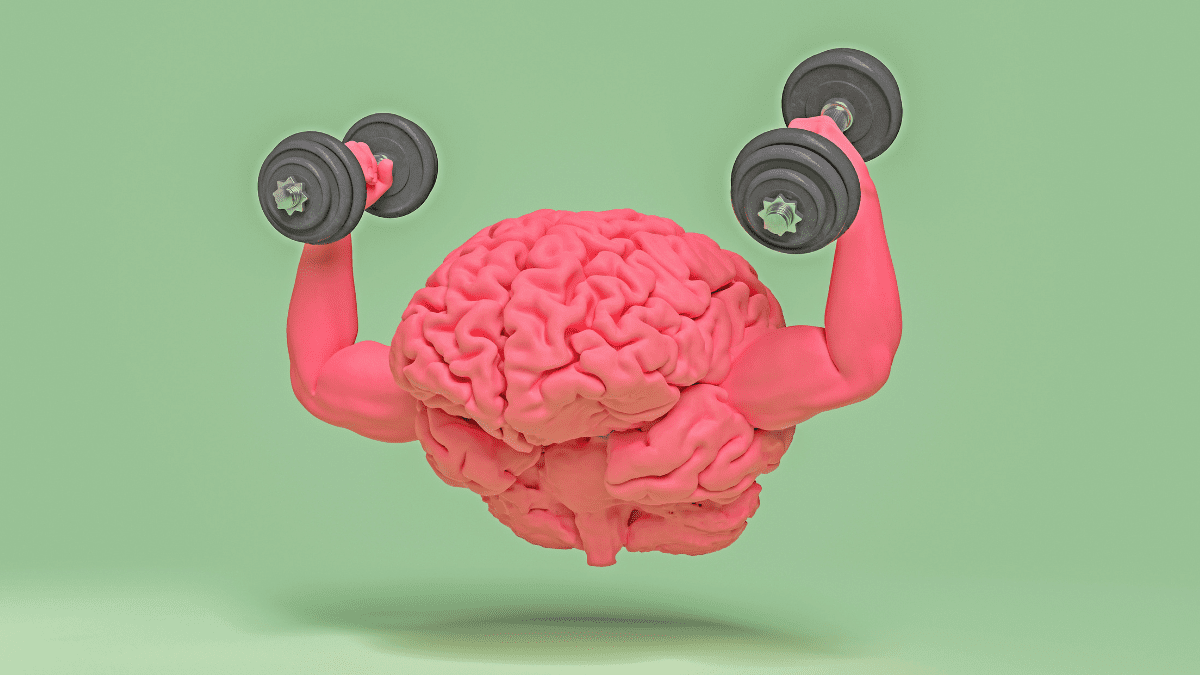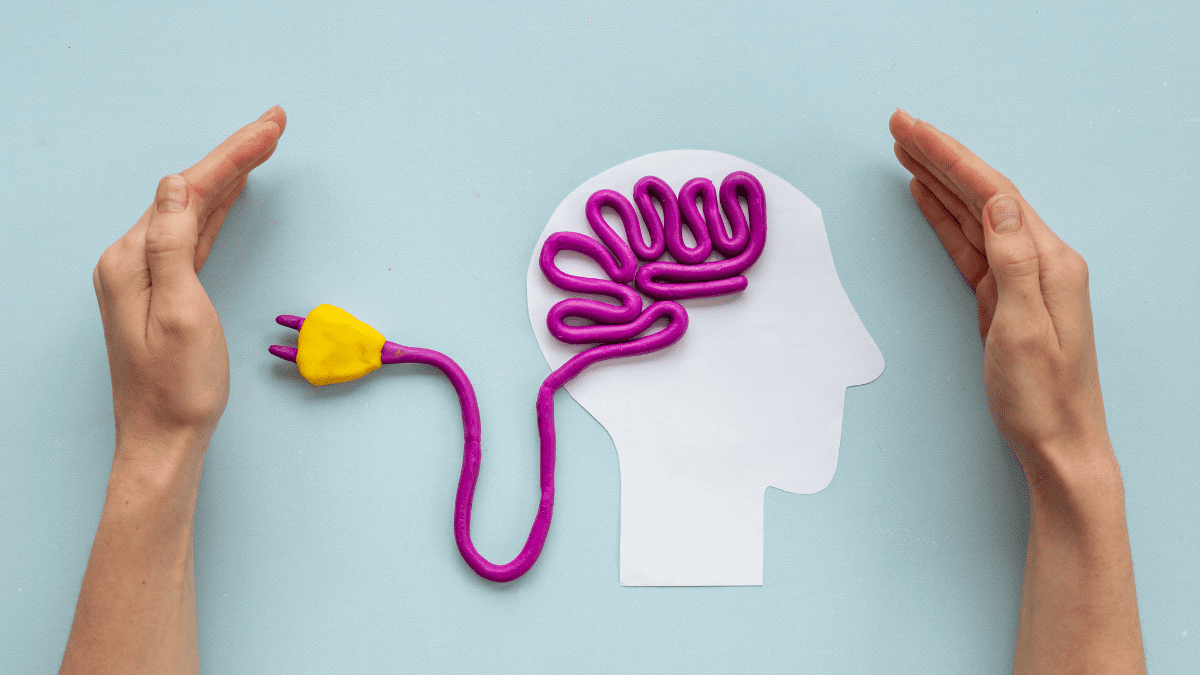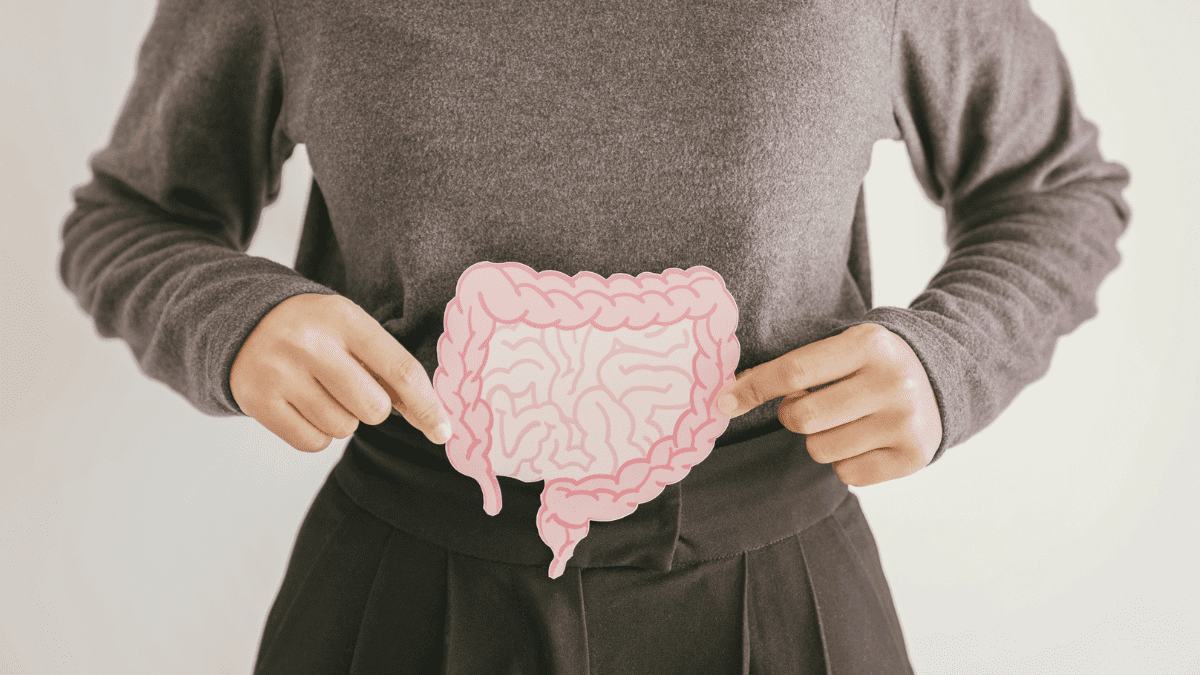Mindfulness and the Brain: Unlock Your Full Potential Now
Mindfulness rewires the brain, reducing stress, enhancing focus, and promoting emotional balance. Learn the science behind meditation and how it transforms mental well-being for a healthier, more resilient mind.

Mindfulness and the brain share a powerful connection. Research shows that meditation strengthens neural pathways, improves focus, and reduces stress. Instead of simply reacting to challenges, the brain learns to adapt, building resilience and emotional stability.
Scientific studies confirm that mindfulness increases activity in the prefrontal cortex, the area responsible for decision-making and attention control. At the same time, it lowers activity in the amygdala, the part of the brain linked to fear and stress. These changes improve emotional regulation, enhance cognitive function, and support long-term mental well-being.
But how does this transformation happen? What do brain scans reveal about the effects of mindfulness? In this guide, we will explore the neuroscience behind meditation, breaking down how mindfulness supports neuroplasticity, stress reduction, emotional balance, and cognitive longevity.
By the end, you will understand why mindfulness is not just a relaxation technique but a science-backed method for rewiring the brain and optimizing mental health.
Mindfulness and the Brain: How the Mind Adapts
For decades, scientists believed that the brain was fixed and unchangeable after childhood. However, breakthroughs in neuroscience and mindfulness research have proven otherwise. Mindfulness and the brain are deeply connected, with meditation shown to reshape neural pathways, improve cognitive function, and reduce stress responses.
How Meditation Changes the Brain’s Structure
Studies using MRI scans have shown that regular mindfulness practice leads to measurable changes in the brain, including:
- Increased Gray Matter in the Prefrontal Cortex – Responsible for decision-making, focus, and emotional regulation, this region strengthens through mindfulness, leading to sharper cognitive function and improved emotional balance.
- Reduced Size of the Amygdala – Known as the brain’s fear and stress center, the amygdala shrinks in response to mindfulness, making stress and anxiety more manageable.
- Strengthened Hippocampus – This region, responsible for memory and learning, becomes more active with regular meditation, enhancing mental clarity and problem-solving skills.
Neuroplasticity: How Mindfulness Rewires the Brain
The brain constantly adapts based on experience, a process known as neuroplasticity. Just as physical exercise strengthens muscles, mindfulness trains the brain to enhance focus, regulate emotions, and foster inner calm.
Key takeaways from neuroscience studies:
Mindfulness and the brain are interconnected, with meditation strengthening neural pathways for emotional resilience.
Consistent mindfulness practice improves mental flexibility, stress regulation, and cognitive adaptability.
Long-term meditation helps reduce overactivity in fear-based brain circuits, promoting a calmer state of mind.
These findings confirm that mindfulness is not just a mental exercise—it’s a scientifically proven method for reshaping the brain and enhancing well-being.
Stress Reduction: The Brain’s Response to Meditation
Chronic stress can negatively impact brain function, increasing anxiety, impairing memory, and weakening emotional regulation. However, research shows that mindfulness helps the brain manage stress more effectively by altering neural pathways and calming the nervous system.
How Mindfulness Lowers Stress Hormones
When the brain perceives a threat, the amygdala—the brain’s fear center—activates the body’s stress response, releasing cortisol and adrenaline. Over time, excessive cortisol can damage neurons, leading to heightened anxiety and difficulty concentrating.
Studies show that mindfulness meditation:
- Reduces activity in the amygdala, lowering emotional reactivity.
- Increases connections between the prefrontal cortex and amygdala, improving emotional regulation.
- Lowers cortisol levels, helping the body recover from stress faster.
By practicing mindfulness regularly, the brain becomes more adept at handling stress, preventing it from escalating into chronic anxiety or burnout.
Activating the Parasympathetic Nervous System
Mindfulness also engages the parasympathetic nervous system, which counteracts the body’s fight-or-flight response. This system is responsible for rest, digestion, and relaxation. When activated through deep breathing and meditation, it:
- Slows the heart rate, reducing physical symptoms of stress.
- Lowers blood pressure, promoting cardiovascular health.
- Enhances overall emotional balance, making it easier to stay calm in challenging situations.
Long-Term Benefits of Mindfulness for Stress Management
Regular mindfulness practice helps reshape the brain’s response to stress over time. Studies using MRI scans have found that long-term meditators have:
- Smaller amygdalas, indicating a reduced tendency toward stress and fear.
- Thicker prefrontal cortex regions, associated with improved focus and self-control.
- Greater connectivity between brain regions, allowing for better emotional resilience.
Stress is an unavoidable part of life, but mindfulness provides the tools to manage it effectively, protect brain function, and improve overall well-being.
Mindfulness and the Brain: Strengthening Focus and Memory
In today’s fast-paced world, maintaining focus and sharp memory can be challenging. Scientific research confirms that mindfulness and the brain are closely linked, with meditation improving cognitive function, concentration, and memory retention.
How Mindfulness Improves Attention and Focus
The ability to concentrate is controlled by the prefrontal cortex, the area of the brain responsible for decision-making and focus. Studies show that mindfulness meditation:
- Increases gray matter density in the prefrontal cortex, strengthening attention control.
- Enhances sustained attention, allowing for longer periods of deep focus.
- Reduces mind-wandering, improving efficiency and productivity.
Regular meditation helps train the brain to stay present, process information more effectively, and minimize distractions.
Memory Enhancement Through Neuroplasticity
Mindfulness also plays a significant role in boosting memory by stimulating neuroplasticity, the brain’s ability to form new neural connections. Research reveals that meditation:
- Increases activity in the hippocampus, the region responsible for memory formation and learning.
- Improves working memory, making it easier to retain and recall information.
- Protects against age-related cognitive decline, slowing memory loss in older adults.
By strengthening these cognitive functions, mindfulness enhances both short-term and long-term memory retention.
The Science of Cognitive Longevity
As people age, cognitive function naturally declines, but mindfulness helps preserve brain health. Long-term meditation practice has been linked to:
- A slower rate of brain aging, preserving memory and problem-solving skills.
- Increased cortical thickness, which protects against neurodegenerative diseases.
- Higher mental clarity and faster information processing.
Mindfulness is not just a tool for relaxation—it’s a proven method for enhancing focus, memory, and overall brain function.
Mindfulness and the Brain: Strengthening Emotional Resilience
Emotional resilience is the ability to navigate stress, anxiety, and challenges without becoming overwhelmed. Research confirms that mindfulness and the brain are deeply connected, with meditation helping to regulate emotions, enhance self-awareness, and promote overall mental well-being.
How Mindfulness Enhances Emotional Regulation
The brain’s limbic system, particularly the amygdala, plays a key role in processing emotions. Overactive amygdala activity is linked to stress, fear, and impulsive reactions. Studies show that mindfulness helps by:
- Reducing amygdala activity, lowering emotional reactivity and stress responses.
- Increasing prefrontal cortex function, improving rational thinking and decision-making.
- Enhancing emotional intelligence, allowing for better control over reactions and mood swings.
By training the brain to respond rather than react, mindfulness fosters emotional resilience, helping individuals stay calm and balanced in challenging situations.
The Role of Mindfulness in Reducing Anxiety and Depression
Chronic stress and negative thought patterns contribute to mental health challenges like anxiety and depression. Mindfulness meditation interrupts these patterns by:
- Rewiring neural pathways to support positive thinking.
- Regulating serotonin and dopamine levels, which influence mood and happiness.
- Improving the brain’s ability to handle stress, reducing long-term emotional exhaustion.
MRI studies show that long-term meditators have a smaller, less reactive amygdala, leading to a greater sense of inner peace and emotional control.
Cultivating Self-Awareness Through Mindfulness
Self-awareness is a critical component of emotional resilience. Mindfulness strengthens this ability by:
- Activating the insula, a brain region linked to self-reflection and empathy.
- Helping individuals recognize and regulate emotions in real time.
- Encouraging present-moment awareness, reducing the influence of past regrets or future anxieties.
Through consistent practice, mindfulness allows individuals to experience emotions fully without being controlled by them, leading to greater mental clarity and emotional stability.
Mindfulness and the Brain: Enhancing Sleep and Recovery
Quality sleep is essential for brain function, memory consolidation, and emotional regulation. Scientific research confirms that mindfulness and the brain are deeply connected when it comes to sleep, with meditation shown to reduce insomnia, enhance deep sleep, and improve overall recovery.
How Mindfulness Improves Sleep Quality
Many sleep disturbances stem from stress, racing thoughts, and an overactive nervous system. Mindfulness helps the brain transition into a state of relaxation, making it easier to fall and stay asleep. Studies show that mindfulness:
- Activates the parasympathetic nervous system, lowering heart rate and blood pressure.
- Reduces cortisol levels, decreasing stress that interferes with sleep.
- Increases melatonin production, the hormone that regulates sleep cycles.
By practicing mindfulness before bed, individuals experience deeper, more restorative sleep.
The Role of Mindfulness in Reducing Insomnia
Insomnia is often linked to rumination and an overactive mind, making it difficult to relax at night. Mindfulness meditation combats this by:
- Training the brain to let go of intrusive thoughts.
- Promoting relaxation through deep breathing and body scanning techniques.
- Enhancing overall sleep efficiency, leading to fewer night-time awakenings.
Clinical trials have found that individuals who practice mindfulness report less difficulty falling asleep and better sleep satisfaction compared to those who don’t meditate.
How Sleep Supports Brain Recovery
During sleep, the brain undergoes essential recovery and repair processes, including:
- Clearing out toxins and waste through the glymphatic system.
- Consolidating memories and processing emotions.
- Strengthening neural connections that support learning and problem-solving.
Mindfulness optimizes these functions by ensuring better sleep cycles, deeper REM sleep, and overall cognitive restoration.
By integrating mindfulness into a bedtime routine, individuals can experience profound improvements in both sleep quality and brain health.

Mindfulness and the Brain: Slowing Aging and Enhancing Longevity
Aging affects brain function, leading to memory decline, reduced cognitive flexibility, and slower information processing. However, research shows that mindfulness and the brain are interconnected in ways that help slow aging, preserve mental clarity, and protect against neurodegenerative diseases.
How Mindfulness Protects the Aging Brain
As people age, the brain undergoes structural changes, including:
- Shrinking of the prefrontal cortex, impacting decision-making and attention.
- Declining hippocampus volume, affecting memory and learning.
- Increased oxidative stress and inflammation, accelerating cognitive decline.
Studies reveal that mindfulness helps counteract these effects by:
- Increasing gray matter density in key brain regions associated with memory.
- Enhancing synaptic connections, improving neural communication.
- Reducing chronic inflammation, which is linked to neurodegenerative diseases.
Long-term meditators have been found to have younger-looking brains, with greater gray matter volume compared to non-meditators of the same age.
Mindfulness and Neurodegenerative Disease Prevention
Mindfulness has been studied for its role in protecting against Alzheimer’s, dementia, and Parkinson’s disease. Research suggests that meditation:
- Reduces the buildup of beta-amyloid plaques, a hallmark of Alzheimer’s disease.
- Enhances cognitive reserve, allowing the brain to compensate for age-related changes.
- Improves emotional resilience, which is linked to better long-term mental health.
By supporting brain longevity, mindfulness helps individuals stay mentally sharp, emotionally balanced, and cognitively engaged well into old age.
The Longevity Benefits of Mindfulness
Beyond cognitive health, mindfulness has been linked to greater overall longevity by:
- Lowering blood pressure and reducing cardiovascular disease risk.
- Enhancing immune function, protecting against age-related illnesses.
- Promoting emotional well-being, which contributes to a longer, healthier life.
By integrating mindfulness into daily routines, individuals can preserve brain function, slow cognitive aging, and improve overall quality of life.
Mindfulness and the Brain: Practical Techniques for Daily Integration
Understanding the science behind mindfulness is valuable, but true transformation happens through consistent practice. The connection between mindfulness and the brain strengthens over time, leading to improved focus, emotional regulation, and cognitive function. Incorporating mindfulness into daily life doesn’t require hours of meditation—small, intentional habits can make a lasting impact.
1. Breath Awareness for Instant Calm
- Deep, controlled breathing activates the parasympathetic nervous system, reducing stress and promoting relaxation.
- A simple technique: Inhale for four seconds, hold for four seconds, exhale for four seconds—repeat for one minute.
- Practicing mindful breathing multiple times a day trains the brain to stay present and calm.
2. Body Scan Meditation for Awareness
- This technique involves slowly focusing on each part of the body, releasing tension and bringing attention to the present moment.
- Research shows that body scan meditation helps reduce pain perception and stress-related tension.
- Practicing this before bed can improve sleep quality and relaxation.
3. Mindful Eating to Strengthen Focus
- Eating without distractions strengthens sensory awareness and self-control.
- Paying attention to flavors, textures, and chewing slowly enhances digestion and reduces mindless eating habits.
- Mindful eating fosters a deeper brain-body connection, reinforcing presence and gratitude.
4. Gratitude Practice to Rewire Neural Pathways
- Neuroscience confirms that expressing gratitude strengthens positive thinking patterns in the brain.
- Writing down three things you’re grateful for daily boosts happiness and reduces stress.
- Long-term gratitude practice is linked to increased emotional resilience and a healthier brain.
5. Walking Meditation for Mental Clarity
- Instead of rushing through daily walks, practicing slow, mindful walking improves focus and lowers stress.
- Bringing attention to each step, breath, and surroundings enhances cognitive function and emotional stability.
- Walking meditation is particularly effective in reducing anxiety and rumination.
6. Mindful Journaling to Improve Self-Awareness
- Writing thoughts, emotions, and reflections enhances emotional processing and mental clarity.
- Journaling helps identify negative thought patterns and replace them with healthier perspectives.
- Studies show that writing regularly improves memory, problem-solving, and cognitive flexibility.
These simple techniques, when practiced consistently, train the brain for long-term resilience, focus, and well-being. Even a few minutes of mindfulness each day can create measurable changes in brain structure and function.
Conclusion
The connection between mindfulness and the brain is undeniable. Scientific research has proven that meditation rewires neural pathways, strengthens cognitive function, and enhances emotional resilience. By regularly practicing mindfulness, individuals can experience profound changes in their mental clarity, stress levels, and overall well-being.
Key takeaways from the science of mindfulness:
- Mindfulness enhances neuroplasticity, allowing the brain to adapt and grow.
- Meditation reduces stress, lowering cortisol levels and calming the nervous system.
- Regular mindfulness practice improves memory, focus, and emotional stability.
- Mindfulness supports sleep quality and cognitive longevity, helping protect against neurodegenerative diseases.
The most powerful aspect of mindfulness is that it is accessible to everyone. Even small daily practices—such as breath awareness, gratitude journaling, and mindful eating—can create lasting positive changes in brain function.
By integrating mindfulness into daily life, individuals can build a stronger, healthier, and more resilient mind, leading to greater emotional balance, sharper thinking, and long-term well-being.
Frequently Asked Questions (FAQ)
1. How does mindfulness rewire the brain?
Mindfulness strengthens neural pathways associated with focus, emotional regulation, and memory. It increases gray matter density in key brain regions, enhances neuroplasticity, and reduces activity in the amygdala, lowering stress responses.
2. How long does it take for mindfulness to change the brain?
Studies suggest that eight weeks of consistent mindfulness practice can lead to measurable changes in brain structure, improving focus, emotional resilience, and stress regulation. However, benefits can be felt even after a few sessions.
3. Can mindfulness help with anxiety and depression?
Yes. Research shows that mindfulness reduces symptoms of anxiety and depression by rewiring negative thought patterns, regulating serotonin and dopamine levels, and promoting emotional stability.
4. Does mindfulness improve memory and cognitive function?
Yes. Mindfulness has been linked to enhanced memory retention, better problem-solving skills, and increased cognitive flexibility by strengthening the hippocampus and prefrontal cortex.
5. Is meditation the only way to practice mindfulness?
No. Mindfulness can be practiced through breath awareness, mindful walking, journaling, gratitude exercises, and even mindful eating. Any activity that brings full attention to the present moment strengthens mindfulness and the brain.
With consistent practice, mindfulness can lead to long-lasting improvements in mental health, cognitive performance, and overall well-being.







